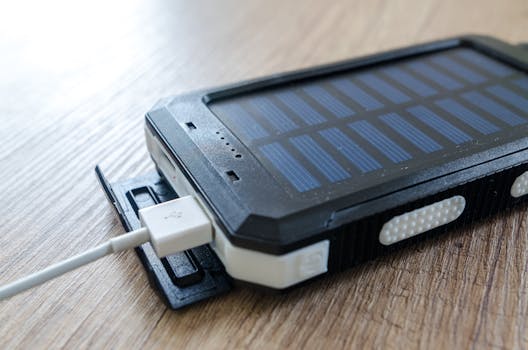
Table of Contents
Introduction
The world is changing, and technology is evolving at an unprecedented pace. As we look towards 2025, the integration of sustainability into tech products is becoming increasingly crucial. In our quest to combat climate change and reduce our carbon footprint, eco-friendly gadgets are emerging as vital tools that not only enhance our lives but also protect our planet. This blog post explores the innovative eco-friendly gadgets that are shaping 2025, their impact on the environment, and the future of sustainable technology.
Eco-Friendly Gadgets of 2025
The landscape of technology in 2025 is filled with remarkable eco-friendly gadgets designed to minimize environmental impact. Here are some notable innovations:
1. Solar-Powered Smart Devices
Solar energy has become a mainstream power source, powering everything from smartwatches to home appliances. In 2025, expect to see a vast array of devices equipped with solar panels that charge on-the-go, reducing reliance on traditional energy sources. These devices are not only efficient but also cost-effective in the long run.
2. Biodegradable Electronics
As awareness of e-waste grows, manufacturers are pivoting towards biodegradable materials for electronics. By 2025, gadgets made from natural materials that decompose after their lifecycle will be commonplace. This innovation significantly reduces landfill waste and promotes a circular economy.
3. Energy-Efficient Home Automation Systems
Smart home technology is evolving to prioritize energy efficiency. Home automation systems that optimize energy consumption—such as smart thermostats and intelligent lighting—will help reduce household energy use by up to 30% by 2025. These systems can learn user habits and adjust settings accordingly, contributing to overall sustainability.
4. Eco-Friendly Wearables
Wearable technology is set to become more sustainable with the introduction of eco-friendly materials and energy sources. In 2025, expect to see fitness trackers and smartwatches made from recycled materials, equipped with solar charging capabilities, and designed to monitor not just health but also environmental impact.
Impact on the Environment
The rise of eco-friendly gadgets is not just a trend; it represents a significant shift towards a more sustainable future. The impact of these gadgets on the environment is profound:
1. Reduction in Carbon Footprint
By utilizing renewable energy sources and biodegradable materials, eco-friendly gadgets significantly reduce the carbon footprint associated with traditional tech. This shift is crucial in the fight against climate change and promotes a more sustainable lifestyle.
2. Minimization of E-Waste
With the development of biodegradable electronics, the problem of e-waste is being addressed. Reducing the amount of electronic waste that ends up in landfills is essential for protecting our ecosystems and promoting a healthier planet.
3. Conservation of Resources
Eco-friendly gadgets are designed to be more efficient, conserving resources such as water and electricity. For instance, smart irrigation systems that monitor soil moisture can reduce water waste in agriculture, contributing to sustainable farming practices.
The Future of Sustainable Tech
As we move towards 2025 and beyond, the future of sustainable technology looks bright. Here are some predictions:
1. Widespread Adoption of Green Tech
With consumers becoming more environmentally conscious, the demand for sustainable gadgets will continue to rise. Companies will be forced to innovate and adapt, focusing on eco-friendly practices and products to stay competitive in the market.
2. Increased Investment in Research and Development
Investment in sustainable technology research will accelerate, leading to the development of even more innovative solutions. Expect breakthroughs in energy storage, recycling processes, and sustainable materials that will further reduce our reliance on harmful practices.
3. Integration of AI in Sustainability
Artificial intelligence will play a crucial role in optimizing the use of eco-friendly gadgets. From smart homes to smart cities, AI can help manage resources more efficiently, predict energy needs, and enhance the overall sustainability of our environments.







